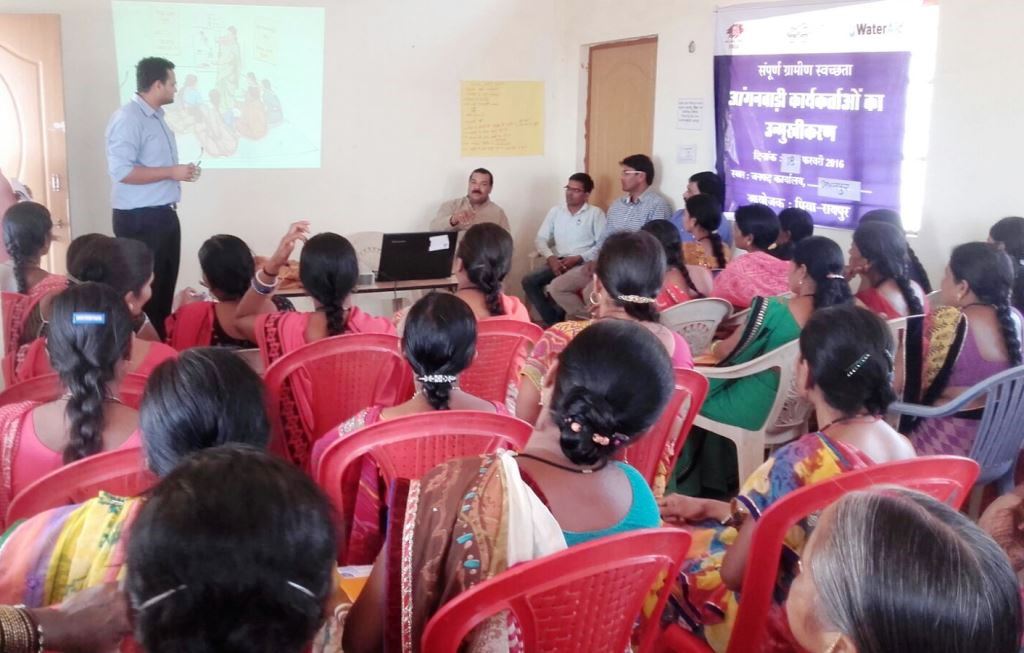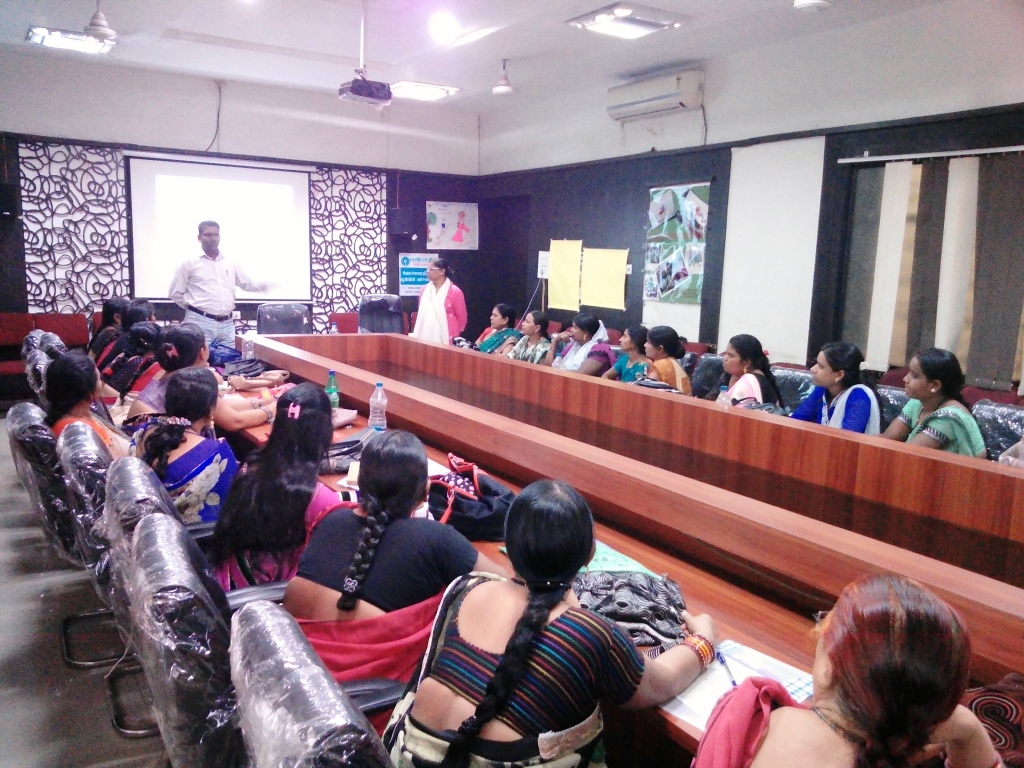| Date 18-Feb-2016 to 19-Feb-2016 |
Location Chhattisgarh |
Format Local |
Cleanliness and hygiene are the issues that are closely relate to individual’s behaviour. People develop their some of the traits (behaviour/ habit) from their early childhood. After the establishment of Anganwadi at village level good numbers of children(of 0-4 years) are visiting these Anganwadis. They stay there for three-four hours and try to learn some lessons also. Anganwadi workers are playing significant roles to inculcate some habits among the children who are visiting various Anganwadi centres.
Keeping this in mind PRIA organised one day’s orientation programmes for the Anganwadi workers that are placed in various Gram Panchayats of Abhanpur and Dharsiva blocks of Raipur district in Chhattisgarh. These programmes were organised on 18 and 19 February, 2016 to build capacities of Anganwadi workers in relation to key provisions made for promotion of cleanliness and hygiene under Swachh Bharat Mission. In all 155 Anganwadi workers were trained during the two training programmes. Along with the Anganwadi workers the Presidents of the Janpad Panchayats, Chief Executive Officers, Lady Supervisors also attended these training programmes.
Pictorial representation where several stories and examples related to open defecation and diseases were given used to orient the Anganwadi workers.
During the programmes Anganwadi workers were oriented on following issues –

The CEO of Abhanpur Janpad Ms. Swechcha Singh observed that it is important to carry out these trainings regularly as it makes people understand their individual roles and responsibilities to accomplish this mission. Similarly, the CEO of Dharsiwa Janpad Mr. Mahesh Patel shared that every individual has to take the ownership of work so that we can together achieve the goals set by SBM.
Janpad Adhyaksh Ms. Rukmani Verma applauded the efforts of PRIA and observed that women have always been the change agents. She also said that bringing a positive change in the behaviour of people is one of the challenging tasks, but it could be done if the Anganwadi workers intervene in their villages, appropriately, after receiving this training.